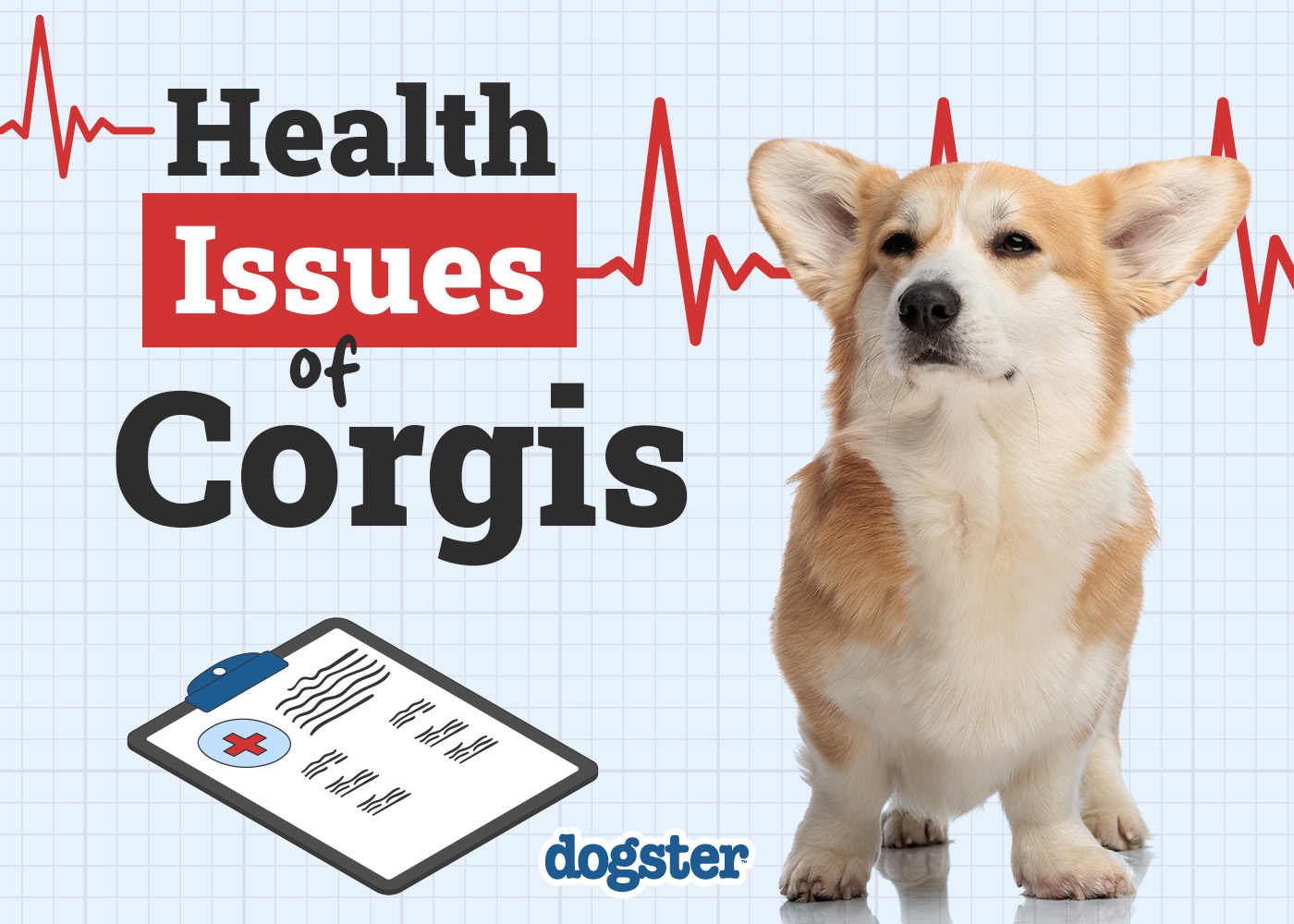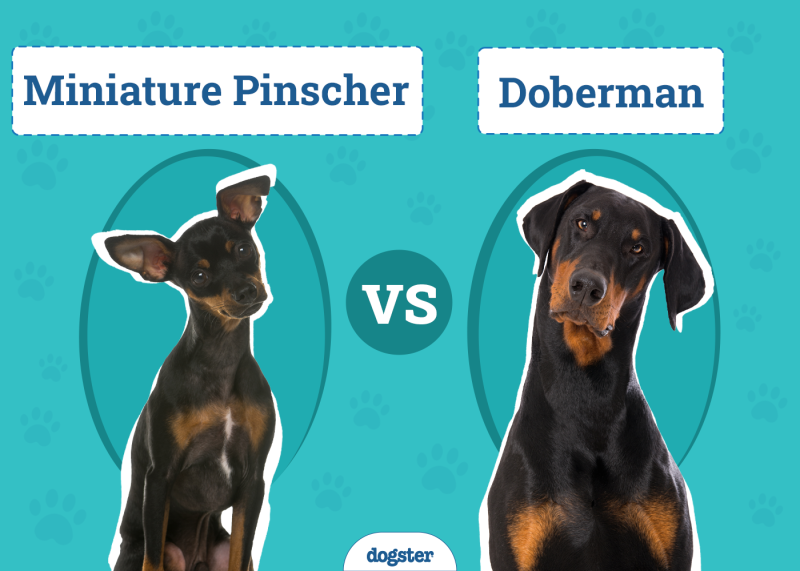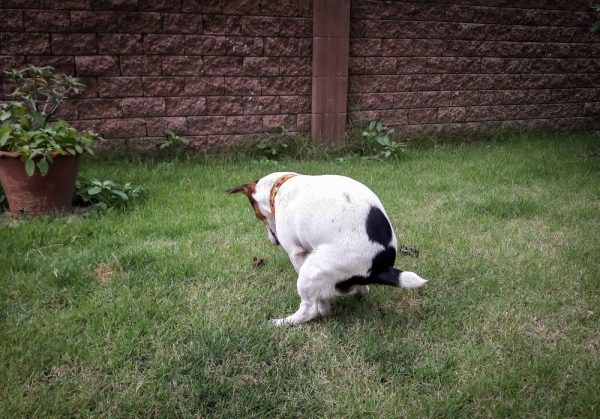In this article
The Corgi was bred as a working dog, used to herd livestock, and used for various activities around the yard and barn. The Corgi has become a popular pet, too, thanks to their people-pleasing character, intelligence, and agreeable personality.
Their popularity can be partially attributed to Queen Elizabeth II, who kept dozens of the breed during her reign as Queen of the United Kingdom. Although generally considered a healthy, hardy breed, the Corgi is prone to some genetic and physical conditions, especially thanks to their short stature and long back.
In this article, we’ll discuss 12 health problems in Corgis and what you can do to help.

About Corgis
The Corgi was first bred in Wales, although exactly when they were developed is unknown. Some believe that they were bred from Viking Vallhunds in the 10th Century. Others believe they originated from Flemish dogs in the 12th Century. Folklore argues that they were bred as the mounts of Welsh fairies. Whatever their history, the Corgi were used to herd sheep, goats, and cattle.
In 1934, the UK Kennel Club split the Corgi breed in two with the Pembroke Welsh Corgi and the Cardigan Corgi. The American Kennel Club followed suit in the same year, and the two have been treated as separate ever since.
Pembroke Corgis, also called Welsh Corgis or Pembroke Welsh Corgis, are the more popular of the two breeds and are smaller. They also have a docked tail, whereas the Cardigan Corgi has a full tail and stands taller and heavier than the Pembroke. Both breeds share many similarities, both physically and in terms of their character.
The Corgi is friendly and gets along with all family members. They are intelligent, like to please their owners, and are still used as herding and working dogs today. They tend to be more independent and can be stubborn. They are generally healthy but are prone to illnesses and conditions, many of which are a result of their short stature.

Chondrodysplasia
Corgis, like Dachshunds and at least a dozen other short breeds, get their most distinctive feature from a genetic mutation. It is caused by the existence of the FGF4 gene, which leads to achondroplastic dwarfism. This canine dwarfism gives Corgis their short legs, which are ideal for herding because it means that the dog is less likely to get kicked by the cattle they tend, but it also carries some side effects.
Corgis are more likely to suffer spinal conditions than other dogs. They are also prone to other genetic conditions, some of which are linked to the FGF4 gene and dwarfism. Below are 12 conditions that Corgis are more likely to suffer compared to other breeds.

The 12 Health Issues to Watch Out for in Corgis
Spinal Conditions
The long back and short legs of the Corgis may have proven helpful for herding, but these physical characteristics also carry risks. The Corgi is especially prone to skeletal conditions, including the following:
1. Hip Dysplasia
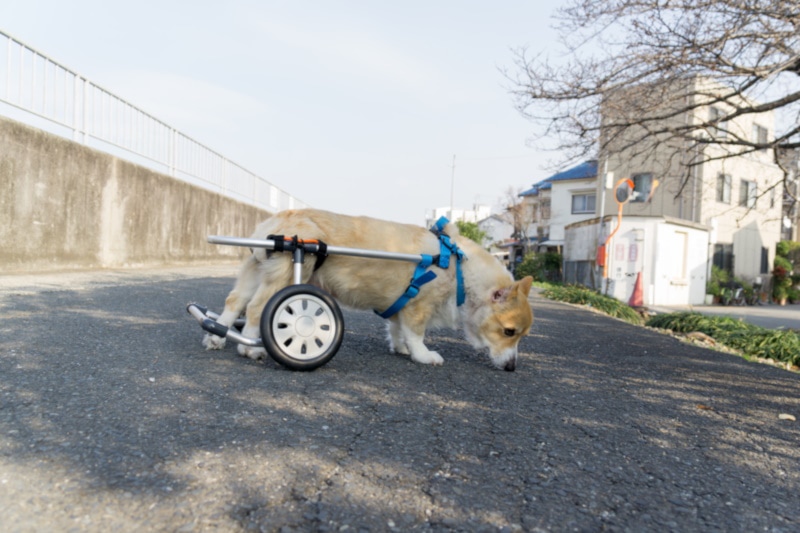
Hip dysplasia is a condition common in several breeds. Corgis are especially prone because of their short legs and long backs. Hip dysplasia causes the thigh bone to sit abnormally in the hip joint, causing joint laxity. Over time, the condition has similar signs to canine arthritis.
Sufferers tend to endure discomfort and the resulting arthritis condition can cause pain. Arthritis can develop later in a Corgi’s life, but hip dysplasia is, in part, an inherited condition. Breeding Corgis should be screened for the condition, and if you are buying from a breeder, you should ask for proof that the parents are free from hip dysplasia.
If you are adopting from a rescue or shelter, you can have the dog tested for hip dysplasia. The development and progression of hip dysplasia depend on genetics, early exercise, and dietary conditions of those at increased risk of developing the problem.
A vet will usually recommend exercise, medication, and dietary changes to manage the signs. Although the hip can be replaced, it can be expensive and is usually considered a last resort.
2. Intervertebral Disc Disease
The long back of the Corgi can also increase the risk of intervertebral disc disease. Affected dogs have varying degrees of neurological problems and pain caused by the protrusion of discs between the dog’s vertebrae to push onto the spinal cord. The signs include weakness, incoordination, pain, and paralysis.
If the condition is mild, a vet will usually recommend weight control, medications, and possibly essential fatty acid supplements, but if the disease is causing significant neurological problems, surgery will be required.
3. Degenerative Myelopathy

Degenerative myelopathy occurs when the white matter in the spinal cord progressively degenerates. It is a genetic condition inherited from both parents, and the signs usually occur when Corgis are around 11 years old.
The signs include weakness in the rear legs, eventually leading to paralysis of the dog’s hind legs. There is no known treatment for the condition, but there have been recent developments in DNA testing. Sadly, degenerative myelopathy is ultimately fatal.

Eye Conditions
As well as being prone to spinal conditions, Corgis are also known to be at higher risk of developing eye conditions when compared to other breeds.
4. Cataracts
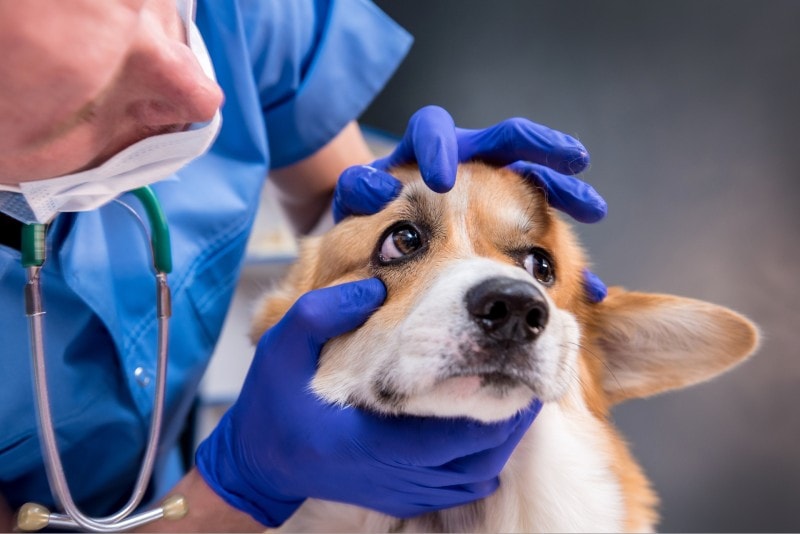
Cataracts occur when the lens of the eye develops dense cloudy patches. They can occur in dogs and humans, and Corgis are more prone than most other breeds. Cataracts tend to surface later in life and can cause poor vision.
Cataracts can be treated, but your vet will decide, based on your dog’s age and physical condition, whether surgery is likely to be successful and worthwhile.
5. Progressive Retinal Atrophy
Progressive retinal atrophy is the result of several eye conditions that cause the condition of the retina to deteriorate. This will lead to night blindness initially and can eventually lead to total blindness. Dogs are good at adapting to progressive retinal atrophy, but they will need to stick to a daily routine to do so.
There is no known treatment for progressive retinal atrophy at the moment, but genetic testing for PRA can be carried out.
6. Retinal Dysplasia
Retinal dysplasia occurs when the retina develops abnormally. There is no treatment for this condition, which is less common than progressive retinal atrophy and cataracts, and breeders should have their dogs tested for its presence to ensure that it is less likely to be passed on to puppies.

Other Conditions
Corgis are prone to conditions common to all breeds, while other health issues are more prominent in the Corgi breed.
7. Von Willebrand’s Disease
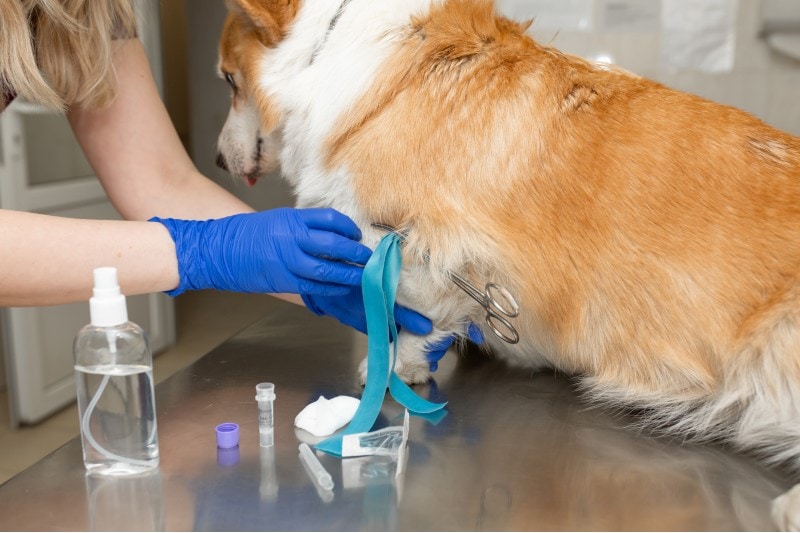
Von Willebrand’s Disease, similar to hemophilia, can affect humans and dogs. It causes the dog’s blood not to clot as effectively as it should, causing nosebleeds and bleeding gums. It may also mean that your dog will suffer prolonged bleeding after an injury, following surgery, or as a result of heat cycles.
You may also notice blood in your dog’s stools. Von Willebrand’s disease is inherited, and while there is no cure, it can usually be effectively managed through transfusions and medication.
8. Patent Ductus Arteriosus
Patent ductus arteriosus is a heart condition in which a vessel between the aorta and the pulmonary artery fails to close at birth. Unoxygenated blood bypasses the lungs, which can lead to congestion and eventually cause the heart to become enlarged.
Untreated, patent ductus arteriosus can lead to heart failure. The signs include shortness of breath and trouble breathing. Treatment requires the closing of the vessel, which can usually be done through keyhole surgery by a specialist.
9. Epilepsy
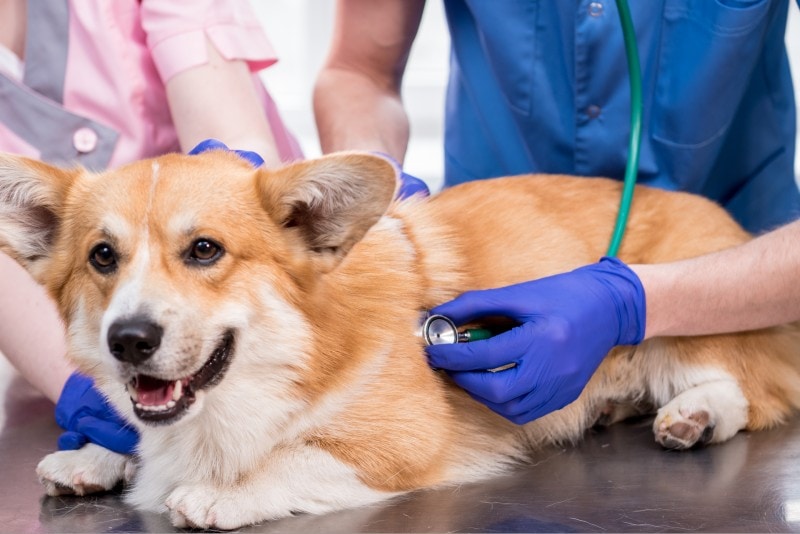
Epilepsy is a neurological condition. It may be inherited but may develop independently, and it causes seizures. Seizures can take different forms, from unexplained periods of hyperactivity to periods of unconsciousness.
Epilepsy can be managed, but it needs to be identified and diagnosed quickly to ensure the best chance of successful management.
10. Obesity
Obesity is a problem with many breeds, and it is especially dangerous for Corgis because their short stature makes it very difficult to shift extra weight once it is on. You should ensure that you feed the right amount of good-quality food to your Corgi and provide regular exercise to maintain a healthy weight for your dog.
Avoid giving too many treats or feeding human food because it doesn’t take a lot for a dog to put on extra weight.
11. Cutaneous Asthenia
Cutaneous asthenia is a skin disorder caused by a defect in the dog’s collagen. The layers of the skin are abnormally fragile, leading to droopy or stretchy skin. Other signs can include excessive bruising and blistering.
There is no treatment for the condition, but your vet may be able to offer advice to make your dog more comfortable and prevent injuries and subsequent illnesses.
12. Cystinuria

Cystinuria results from a genetic mutation that causes the reduced reabsorption of cystine in the kidney and gastrointestinal tract. This can lead to the formation of bladder stones due to too much cystine in the urine. Passing the stones is extremely painful, and the signs of cystinuria include difficulty urinating. Your dog may want to go out more often because they struggle to pass urine, and it can lead to urinary tract blockages.
Your vet may recommend increasing fluid intake and special foods. If this fails to correct the problem, some drugs can be administered to break down the stones so that they can be more easily passed, or surgery may be needed.
Remember to have regular vet visits when owning a Corgi to keep their health and well-being. If you’re concerned about your dog’s health we suggest you speak to a vet.
If you need to speak with a vet but can't get to one, head over to PangoVet. It's our online service where you can talk to a vet online and get the advice you need for your dog — all at an affordable price!

Frequently Asked Questions
What Is the Average Lifespan of a Corgi?
The Corgi has an average lifespan of 12 to 15 years, with most living around 12 or 13 years. It’s crucial to provide a good diet and plenty of exercise, and if your Corgi shows signs of any health conditions, be sure to have them checked by a vet to ensure as long a life as possible.
Are Corgis Prone to Anxiety?
The Corgi is not especially prone to anxiety, but any dog can suffer from anxiety. Causes of anxiety include being separated from their owners for too long, health problems, and sudden changes to the dog’s surroundings or routine.
Are Corgis Prone to Back Problems?
The long back and short legs of the Corgi make them especially prone to spinal and back problems. Above, we have highlighted some of the most common, and you should look for signs of back pain. Limiting the amount of climbing and running your Corgi undertakes can decrease the likelihood of developing spinal conditions.

Conclusion
Corgis are popular working dogs and companions. They are friendly, loyal, and intelligent. While the list above looks long and frightening for potential owners, Corgis are generally hardy dogs.
If you are buying from a breeder, ensure that they have conducted the relevant screening on the puppy’s parents, and once you get your dog home, provide a healthy diet and plenty of exercise to ensure their good health.
See also:
Featured Image Credit: ElfinFox, Pixabay
